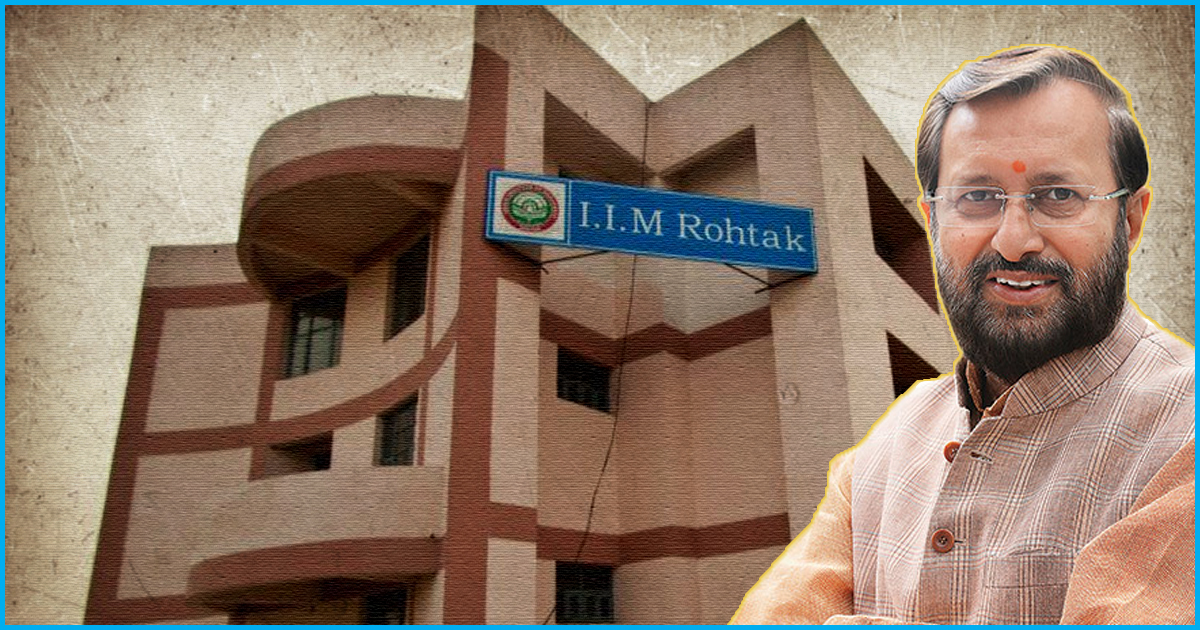What can be seen as another attack on higher educational institutions, the central government has said “no” to the additional funding required by the new IIMs(Indian Institute of Management) to build their campuses reported the Economic Times. The Ministry of Human Resource Development(HRD) has stopped funding to six new IIMs – IM-Rohtak, IIM-Tiruchirappalli, IIM-Raipur, IIM-Kashipur, IIM-Udaipur and IIM-Ranchi as the central government wants them to be self-sufficient.
UPA government had commissioned these IIMs in 2008-09 and allocated Rs 333 crores to each of the colleges to build their permanent campuses. The construction started in 2014 only. Except for IIM-Ranchi, the construction is in the last leg in all the other five institutions and need funds. The government wants these institutions to raise money to sustain themselves either through loans, using their resources or by offering consultancy services. Additional funding would have helped them to complete their work soon but government refusal has put their plans in tatters. The institutions exhausted the budget due to the expansion of construction plans.
The pending funds to IIM-Ranchi (Rs 263 crore), IIM-Raipur (Rs 50 crore), IIM-Rohtak (Rs 46 crore) and IIM-Kashipur (Rs 27 crore) will be released by the centre. The HRD ministry was working on a proposal to release an additional Rs 300 crore for the institutions to manage their budgets but govt junked the idea and notified IIM Act, 2017 act which provides autonomy to these institutions and no funding.
IIM Act, 2017 & funding
IIM Act, 2017 came into force on January 31, 2017, after President Kovind Ram Nath Kovind gave its assent to it on December 31, 2017. The bill provides autonomy to these premier business schools but at the same time, the IIMs have to raise funding on their own. Though the old IIMs like IIM Bangalore, IIM Calcutta and IIM Ahmedabad can raise funds on their own and charge exorbitant fees owing to their brand name, the same is not possible for the new IIMs.
It is to be seen how the IIM Act, 2017 affects higher education in the long run. If the institutions decide to raise fees resulting in education becoming costlier, it will get difficult for even middle-class families to send their wards to these institutions.










